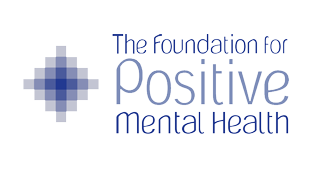Research
Grounded In Theory, Driven By Evidence
An overview of our growing scientific evidence base for Positive Mental Training (PosMT)
- The Building Blocks of Positive Mental Training
- An Effective and Low-Cost Therapy
- Convenient & Accessible
- Therapeutic Mirroring – Helping Patients Further By Improving The Lives of Their Healthcare Professionals
THE BUILDING BLOCKS OF POSITIVE MENTAL TRAINING
Visualisation improves performance »
Understanding the performance basis of PosMT: Insights from sport-based research that shows the power of visualisation on performance.
Accessing positive emotions builds resilience »
How recall can build resilience: Research in the US around the time of 9/11 showed that what drives resilience is access to positive emotions that, under stress, mediate psychological growth and protection from depression.
Combining visualisation with compassion can turn GP and patient wellbeing around in minutes (p16) »
There is increasing evidence that the key process in recovery from distress is the ability to see yourself recovering. Additionally, several studies show that the most important factor predicting recovery in any therapy is the level of warmth shown by the therapist and the expectation of recovery by the patient.
‘Monism’ – Treating body and brain as inseparable »
Rather than a ‘dualistic’ view- that the brain and body are separate entities, we explore the research base of mind/body medicine to arrive at a new therapeutic understanding.
Compassion can influence and promote recovery »
A neurobiological basis for calming a patient and therapist’s fear centres through a cognitively and emotionally-grounded solution that can be mirrored to the patient, thereby aiding recovery.
AN EFFECTIVE AND LOW-COST THERAPY
PosMT can turn negative experiences into positive emotions »
Our study showed that a single resilience-based PosMT track can eliminate the difference between those who can’t adjust emotions easily and those who can.
PosMT is better value for money and more effective than a more workload-heavy computerised cognitive behavioural therapy (CCBT) »
PosMT use was accompanied with standard GP/nurse supervision and monitoring where appropriate. The CCBT programme included ‘homework’ projects and patients were allowed to receive medication, physical investigations, general support/advice and referrals.
PosMT improves the lives of people living with chronic conditions, such as stroke survivors, as well as their caregivers »
Stroke survivors using PosMT reported improved relaxation, better sleep and reduced anxiety within 4 weeks. Those who completed the full 12 week programme found the tool most helpful, with improvements in motivation, confidence, coping, positive outlook, and increased optimism for the future.
CONVENIENT & ACCESSIBLE
PosMT is a low-cost, easily-accessible companion to other therapies »
PosMT is an acceptable and easily accessible tool for many stroke survivors. After a few hours of initial training, the PosMT also requires no other expertise to deliver and could be offered to stroke survivors by any health professional including primary care staff. It is also a very low cost intervention… and can be used alongside antidepressant medication and other psychological therapies.
93% of patients preferred the self-help of PosMT to antidepressants »
Of 58 patients recruited in a partially randomized preference (PRP) study, 50 chose PosMT, whilst only 4 chose antidepressants (4 were randomized). It is believed that PosMT may be perceived as more convenient, less threatening and less stigmatising than medication for treatment of depression.
PosMT is a popular, safe & acceptable intervention for working life »
An independent Occupational Health study of NHS support workers showed that PosMT brought about a significant decrease in burnout – exhaustion and cynicism subscales- and a significant increase in personal efficacy. Additionally levels of anxiety and depression also significantly reduced.
THERAPEUTIC MIRRORING – HELPING PATIENTS FURTHER BY IMPROVING THE LIVES OF THEIR HEALTHCARE PROFESSIONALS
PosMT can improve the patient care pathway by building GP resilience»
Our survey showed that GPs who attended PosMT training felt more able to treat people with mental health problems and deal with their practice overall.
Our RGCP-accredited staff training course, enabled by Action for NHS Wellbeing, increased NHS staff confidence in coping with their own stress and mental health patients »
“Life or work don’t get me as stressed as they used to. I am able to focus and analyse better” – According to our survey, 90% of NHS staff attending the training felt more able to cope with their mental health patients, whilst 75% of all respondents learnt something useful about coping with their own stress.
PosMT can optimise patient recovery from emotional distress by building GP resilience»
At least 75% of the effect of antidepressants is thought to be down to placebos or expectancy. Enabling GPs to maximise expectation and guidance for patients through the understanding and self-application of cost-effective resilience techniques can optimise patient recovery from distress.
Recovery is for everyone – How PosMT improves the lives of NHS staff and their patients »
“The most interesting thing I’ve learnt for years” – The majority of GP respondents liked that PosMT made patients take more responsibility, that it was immediately available as an additional treatment option and that no referral or reading skills were required. Wellbeing scores for GPs and Nurses also increased significantly following PosMT workshops. Significant recovery from burnout and mental distress was also found in NHS staff after 12 weeks of PosMT.



